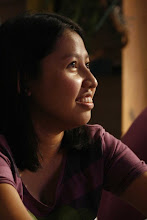Fresh from an all-girls Catholic school a good 10 years ago, I braved my new world, called UPLB, with fingers crossed. I had little idea what to expect until a few buzzes which managed to reach me. One said that the facilities in UP are trapped in the Jurassic era. Another warned me that classes like math and science are being taught in straight Filipino so I should prepare to fail simply due to language constraints. One claimed that the professors are weird; they would either drive me crazy or convert me to their kind. Then another prophesized that my classmates would be composed of frat men, sorority girls and naïve students with tampipi as their bags.
I wish I could be UP’s representative in debunking the “myths” that came piling up before me the moment I received my student number. But the thing is, I can only give you testimonials that will support these said “myths.”
The University of the Philippines, given that it is under the government’s claws, can only afford so much in offering its students the latest technology that supplements a class. We’re lucky we had some overhead projectors, TV sets and video players in UPLB despite budget cut-downs from the government. We all learned to maximize what we had, and to improvise when needed. Once, two of my classmates brought their own TV set and VCD player just so we could push through with our film showing since all of our few AVRs were booked.
The bit about failing classes taught in Filipino is a little extreme. I take it as a hasty excuse at failing. But the speaking in Filipino part is true. As much as we were expected to be fluent in English, UP made sure that its students were well-anchored to our roots, our language. Some of my math, science and even Philosophy classes indeed used Filipino as the language of instruction. Doing so sort of lifted our language to a higher level. From using it by instinct like we do when conversing with our peers, I got to use Filipino in a more structured and formal light. It prepared me in using the vernacular professionally. Plus, I find it awkward mastering a second language when I fumble with my own native tongue.
Now the UP professors and instructors are another case. Imagine how much passion it requires to work with salaries which are surely lower compared with the pay these brilliant UP teachers may get if they teach at private universities. I’d like to believe that our UP faculty do their job mostly out of love. They are geniuses who so easily get absorbed in their field and their hunger for knowledge and beyond. Sometimes, their enthusiasm are so contagious, I cannot help but dig them by heart. In some cases, though, too much of their passion drive students nuts. But isn’t that how we remember our mentors. How they tormented us so that we can be the best persons we can be.
It is true that in a UP classroom, you get to sit with frat men, sorority girls, and, if I may use the term, promdis. Most of the time, these group of people are just victims of common stereotypes. And just like UP, they people are more than what they seem. If there’s anything, some of them have become my friends, and I learned to respect individuality and regional accents through them.
Since UP is huge, the students are more diverse than some realize. I’ve even had classmates from yet “other” general classifications: the Goths, the preachers, the go-getters, the slackers, the coños, the jologs, the tibaks (slang for “aktibista”), the what-you’re-from-UP-? type, the nerds, the socialites, and the ordinary ones—to name a few. Becoming buddies with them is a continuous string of surprises. You’d be astonished at what you’ll discover once you get to know these people personally and eventually peek inside the boxes society labeled for them.
They surely made my UP experience richer. Prior to graduating, I was able to mingle with a cross-section of the real world right inside of my UPLB classroom. It was more than just an eye-opener. It was a blessing.
After I was able to see through whatever preconceived notion outsiders had on UP, it became easy for me to build a life in that new world I found myself in 10 years ago. It was a humbling place that taught me to survive because spoon-feeding doesn’t work in a world where things don’t come easy. UP had its distinct way of reminding me to think of my country among other things. It gave me the chance to fly under the wings of some of the best scholars in our land. Most of all, UP allowed me to meet real people from whom I learned little and big things—from commuting all the way to Malacañang, laying out a print ad in a snap, knowing the chemical composition of a stick of Gudang Garam, to eating at the most sulit spots just to get by with a few pesos inside my pocket.
UP had shown me, in more ways than one, how there always is a real side to what we think we know. My campus had been generous in educating me, not just by simply bombarding me with scholarly texts while I’m pinned inside a four-walled classroom, but by showing me how the world could be and might be. And that our world doesn’t have to be perfect all the time, yet we can work around its flaws to get to where we want to go and become who we want to be. When we do, the rewards prove to be extra sweet.
I know that the circumstances we have to face in our lifetime, the labels we have to live with or disprove, they are life’s attempts to mold us. But the important thing I learned in UP is the possibility of spilling out of those molds, rather than be restricted by them. To peel off labels, when needed, in order to grow and survive without compromising ourselves.
I will forever be honored to have been shaped by UP. And in so being I am confident that I have taken a form which is rather my own.
Sunday, September 14, 2008
Spilling out UP
at
11:59 PM
![]() compartments
Public Thought Balloon
compartments
Public Thought Balloon
Subscribe to:
Post Comments (Atom)
















No comments:
Post a Comment